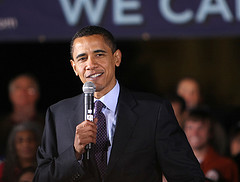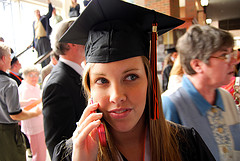helping you to navigate SciEng information
December 12th, 2008 by Kevin Lindstrom | No Comments »
Interested in what’s going on at Google? There are a number of ways of doing this. Going to Google Labs will show you some of their cool new technologies.
What else is going on at Google? Searching the ACM Digital Library for Google in the Affiliations field retrieves 359 papers. The most recent being Programming the Intel 80-core network-on-a-chip terascale processor. A paper presented at the of the 2008 ACM/IEEE Conference on Supercomputing held in Austin, Texas.
Another good database to look at is Compendex. Repeating the same affiliation search in Compendex retrieves 278 papers. The most recent article in Compendex is A New Baseline for Image Annotation published in Springer Lecture Notes in Computer Science, volume 5304, pages 316-329, 2008.
Okay. Let’s look at how Google protects its intellectual property. A search of the Google Patents database for Google in the assignee name field retrieves 100 patents/patent applications with the most recent US patent 7,352,833 Method and System for Temporal Autocorrelation Filtering being published on May 8, 2008.
Repeating the same search in Espacenet retrieves over 1675 patents/patent applications with most recent patent/patent application US 20080301093 A1 Determining Search Query Statistical Data for an Advertising Campaign Based on User-Selected Criteria published on December 4, 2008.
Okay, here’s the challenge. Use Google Scholar find the most up-to-date recent articles, patents/patent applications written by researchers at Google. Let me know what you find and how easy it was.
Moral of the story. There is something to be said for databases such as Compendex, Web of Science and Scifinder Scholar that index thousands of journals and conference proceedings and have sophisticated search interfaces that allow you – the end user to find exactly what you are looking for.
Submitted by Kevin Lindstrom Kevin Lindstrom Liaison Librarian for Electrical and Computer Engineering, Earth and Ocean Sciences, Chemistry and Chemical Engineering, Materials Engineering, Physics and Astronomy, and Physical Geography.
Posted in Amusing stuff, Atmospheric Science, Chemical and Biological Engineering, Chemistry, Civil Engineering, Earth and Ocean Sciences, General Science, Geography, Main, Materials Engineering, Mathematics, Mechanical Engineering, News, Physics, Science - undegraduate classes, Statistics, Wood Sciences | No Comments »
December 5th, 2008 by Kevin Lindstrom | No Comments »
Impact factors, Journal Citation Reports, the Science Citation Index and its online version the Web of Science are all statistical measures of the importance of journals and of the researchers who publish in them.
There are in fact journals that specialize in bibliometrics – the journal Scientometrics is one such example.
Dr. Jorge Hirsch, a physicist at UC San Diego has taken the “times cited” measure one step further by proposing the h-index “defined as the number of papers with citation number >h, as a useful index to characterize the scientific output of a researcher.”
Does the h index have predictive power? Hirsch, J. E. Department of Physics, University of California at San Diego, La Jolla, CA, USA. Proceedings of the National Academy of Sciences of the United States of America (2007), 104(49), 19193-19198.
Bibliometric measures of individual scientific achievement are of particular interest if they can be used to predict future achievement. Here we report results of an empirical study of the predictive power of the h index compared with other indicators. Our findings indicate that the h index is better than other indicators considered (total citation count, citations per paper, and total paper count) in predicting future scientific achievement. We discuss reasons for the superiority of the h index.
Using the Web of Science database, h-indexes can also be calculated for individual departments . For example, here’s the h-index numbers for a select number of Canadian university electrical engineering departments:
TORONTO 89
UBC 54
MCGILL 53
ALBERTA 51
The folks at Thomson Reutershave put together a short but very information video on impact factors and how to use the Web of Science database to find your own h-index.
Submitted by Kevin Lindstrom Liaison Librarian for the Physical and Appled Sciences, University of British Columbia
Posted in Atmospheric Science, Chemical and Biological Engineering, Chemistry, Civil Engineering, Earth and Ocean Sciences, General Science, Geography, Main, Materials Engineering, Mathematics, Mechanical Engineering, Physics, Science - undegraduate classes, Statistics, Wood Sciences | No Comments »
November 5th, 2008 by Eugene Barsky | No Comments »

Now after the election, it would be interesting to see whether Senator Obama will perform on the science and technology issues his campaign has promised.
Here is Obama’s platform on STM issues, accumulated by the American Association for the Advancement of Science – http://election2008.aaas.org/comparisons/obama.shtml
Do you notice something of a particular interest to you?
** Photo by jmtimages
Posted in Atmospheric Science, Chemical and Biological Engineering, Chemistry, Civil Engineering, Earth and Ocean Sciences, General Science, Geography, Main, Materials Engineering, Mathematics, Mechanical Engineering, News, Physics, Science - undegraduate classes, Statistics, Wood Sciences | No Comments »
October 24th, 2008 by Kevin Lindstrom | No Comments »
TRIUMF and UBC’s Department of Physics and Astronomy are proud to present the 2008-09 Saturday morning lecture series on Quantum Physics and Chemistry. We especially welcome guest speakers from the UBC Chemistry Department and from Simon Fraser University to this year’s program. This lecture series will introduce the audience to the essential facts about the quantum world in a systematic and non-technical way, starting with the basics and progressing to more advanced material, at a level appropriate for high school students and members of the general public. It would be excellent enrichment for high school chemistry and physics students. There is no charge for admittance, and students are encouraged to bring friends and interested family members. Teachers and members of the public are also welcome.
Due to the popularity of the series, advance registration is required.
October 25, 2008
10am – 12pm
Prelude to quantum Mechanics: Classical wave motion – Patrick Bruskiewich
Sound waves and the physics of music – Chris Waltham
November 29, 2008
10am – 12pm
Failures of classical physics and the birth of quantum physics – Mark Van Raamsdonk
Lasers and their applications – Kirk Madison
January 17, 2009
10am – 12pm
Quantum physics II – Mark Van Raamsdonk
Quantum computers – Robert Rausendorf
February 14, 2009
10am – 12pm
Quantum chemistry: molecules and chemical bonds – Roman Krems
Quantum chemistry on a computer – Y. Alex Wang
March 28, 2009
10am – 12pm
Quantum tunneling – Patrick Bruskiewich
Quantum weirdness – Bill Unruh
April 18, 2009
10am – 12pm
Quantum mechanics and materials science – Jeff Sonier
Quantum mechanics and subatomic physics – Stanley Yen
Posted in Chemical and Biological Engineering, Chemistry, Earth and Ocean Sciences, General Science, Main, Materials Engineering, Mathematics, News, Physics, Science - undegraduate classes, Statistics | No Comments »
October 15th, 2008 by Eugene Barsky | No Comments »

A technology report (PDF) by a Harvard University student shows that of all the digital tools that professors use, Harvard students find most useful online course material and syllabi.
The report said students want courses to have a Web site that contains readings, notes and other content so they can be accessed easily during the semester. The survey is based on responses last December from 328 undergraduates and 120 graduate students.
Is it the same with our UBC folks? Does it ring any bells for our faculty?
** Photo by AdamLogan
Posted in Atmospheric Science, Chemical and Biological Engineering, Chemistry, Civil Engineering, Earth and Ocean Sciences, General Science, Geography, Main, Materials Engineering, Mathematics, Mechanical Engineering, News, Physics, Science - undegraduate classes, Statistics, Wood Sciences | No Comments »
October 8th, 2008 by Eugene Barsky | No Comments »

Released in June 2008 by Thomson Reuters (formerly ISI), this list shows the top ten nations ranked according to output of published journal articles in 22 main fields of science (including general social sciences), based on papers indexed by Thomson Reuters (excluding books, book chapters, and articles published in non-Thomson Reuters-indexed journals) between January 1998 and February 29, 2008.
http://sciencewatch.com/dr/sci/08/jun15-08_1/
** photo by 427
Posted in Atmospheric Science, Chemical and Biological Engineering, Chemistry, Civil Engineering, Earth and Ocean Sciences, General Science, Geography, Main, Materials Engineering, Mathematics, Mechanical Engineering, News, Physics, Science - undegraduate classes, Statistics, Wood Sciences | No Comments »
October 6th, 2008 by Kevin Lindstrom | No Comments »
The 262 new submissions received between Wednesday 1 Oct and Thursday 2 Oct, announced Friday 3 Oct 2008, brought the total number of articles on arXiv past 500,000 — all openly accessible.
There are also more than 200,000 old versions of articles which record all public revisions since 1997. If the linear increase in submission rate continues, arXiv will pass the one million article mark in 2015.
See press release for more details.
Submitted by Kevin Lindstrom Liaison Librarian for Physics and Astronomy
Posted in Chemistry, Earth and Ocean Sciences, General Science, Main, Mathematics, News, Physics, Science - undegraduate classes, Statistics | No Comments »
September 23rd, 2008 by Eugene Barsky | No Comments »

A great little article about some wotk done by Bruce Dunham and his colleagues is featured in UBC Reports last week – “Prof Improves Probability of Learning Stats”
Great to know that Carl Wieman Science Education Initiative (CWSEI) is involved!
** Photo by Martin Dee
Posted in News, Statistics | No Comments »
September 12th, 2008 by Kevin Lindstrom | No Comments »
We’ve got ebooks on almost any topic under the sun and pdf’s are a lot lighter to carry than paper.
You want books on how to write code in Python or how to fix your new laptop running Microsoft Vista? Have a look at the Books 24X7 IT Collection.
Trying find some good stuff on biodiesel? Heres’ a hot title
Biodiesel – A Realistic Fuel Alternative for Diesel Engines
Need some physical property data like the viscosity of Cl2 gas? A search of Knovel.com will link you to the Chemical Properties Handbook and Yaws’ Handbook of Thermodynamic and Physical Properties of Chemical Compounds
Need some good information on climate change? Here’s a good starting point Assessing Climate Change.
Circuit diagrams for operational amplifiers? Check out the Electrical Engineering Handbook.
All in all, you have access to more than five thousand science and engineering ebooks.
For a complete list (not including Books24X7 titles) go to the Science & Engineering Ebook site. There you can find A-Z titles lists of ebooks as well as the search interfaces for the ebook collections you have access to. Make sure you look at the Springer Ebooks as well. Springer is a major science and engineering publisher.
Remember that these resources are not freely available on internet, so if you are connecting from off campus, go to UBC’s VPN site for instructions.
Posted by Kevin Lindstrom Liaison Librarian for Earth and Ocean Sciences, Chemistry and Chemical Engineering, Electrical and Computer Engineering, Materials Engineering, and Physics.
Posted in About this blog, Amusing stuff, Atmospheric Science, Chemical and Biological Engineering, Chemistry, Civil Engineering, Earth and Ocean Sciences, General Science, Geography, Main, Materials Engineering, Mathematics, Mechanical Engineering, News, Physics, Podcasts, Science - undegraduate classes, Statistics, Wood Sciences | No Comments »
August 29th, 2008 by Kevin Lindstrom | 1 Comment »
PRO/UAW, the union that tried and failed in 2006 to organize the postdocs on the 10 University of California (UC) campuses, has received official notification that it succeeded on its second try. On 19 August, the California Public Employment Relations Board (PERB) faxed a letter to the organizers stating that the union, known formally as Postdoctoral Researchers Organize/International Union, United Automobile, Aerospace and Agricultural Implement Workers of America, had submitted valid signatures from a majority of the approximately 5000 UC postdocs eligible to petition for union representation. Under state law, unionization is therefore automatic. The move brings an estimated 10% of U.S. postdocs into UAW, an AFL-CIO-affiliated national union that represents more than a million other members, including UC academic employees, such as graders, teaching assistants, and lecturers.
Read the full article at here
Submitted by kevin lindstrom Science and Engineering Liaison Librarian
Posted in Atmospheric Science, Chemical and Biological Engineering, Chemistry, Civil Engineering, Earth and Ocean Sciences, General Science, Geography, Main, Materials Engineering, Mathematics, Mechanical Engineering, News, Physics, Statistics, Wood Sciences | 1 Comment »
« Newer Posts - Older Posts »




